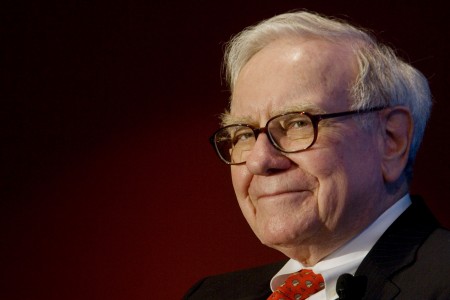
March 1, 2016 – The head of Berkshire Hathaway in addressing shareholder’s concerns represented in a proxy proposal to be raised at the annual shareholder’s meeting this coming April 30th, writes that he equates the climate change brouhaha with the Y2K crisis of 1999-2000. He states he remembers “well the dire predictions of most experts.”
He then waxes philosophical stating the “similarity to Pascal’s Wager on the Existence of God. Pascal, it may be recalled, argued that if there were only a tiny probability that God truly existed, it made sense to behave as if He did because the rewards could be infinite whereas the lack of belief risked eternal misery.”
As much as I respect Mr. Buffett’s ability to pick the right companies he is dead wrong in his suppositions and theoretical comparisons regarding climate change. This is somewhat frightening when you consider the extent of his company’s investments. Buffett states “when you are thinking only as a shareholder of a major insurer, climate change should not be on your list of worries.” Why insurance companies? Because Berkshire Hathaway has significant insurance company assets.
So let’s examine Mr. Buffett’s arguments.
About Y2K
There is no doubt that for companies with mainframe applications Y2K was a concern as the 1990s came to an end. There were lots of old COBOL-based programs that used two-digit year fields and concern focused on what would happen when “99” turned to “00.” Would these programs think the year was 1900? Would elevators stop in mid-descent? Would stock markets using mainframes crash?
I worked for one of the many companies that fed these fears to the marketplace. We rewrote mainframe code to replace the two-digit year field with four-digit one. It was a lucrative business but hardly the risk portrayed. I remember my company’s posters showing tsunamis crashing into Lower Manhattan. But in the end the Y2K threat which I thought was largely a marketing strategy to sell programming services fizzled. None of my clients were pitched about Y2K remediation. So to call Y2K experts equal in competence to the community of climate scientists studying historic and current weather, and building sophisticated models to project the future of our planet, is indeed absurd.
About Pascal’s Wager
Pascal’s Wager as a metaphor for climate change risk is just bizarre. Blaise Pascal lived in a different time and space when science and religion were in direct conflict. He was a deist and posed “God is, or He is not.” and then proceeded to create a mathematical construct and thought exercise to prove God’s existence. Pascal was wrestling with the prospect of eternal life. He believed in heaven and hell. And he approached his proof or disproof as a monotheist and Christian. No attempt was made to factor into his mathematics the existence of many Gods, or even manifestations of God in other monotheist faiths. It is fitting that a computer program is named after him because he was a mathematical genius. But the wager included a pair of loaded dice.
So how does this relate to climate change science?
Is the work of the community representing thousands of individual scientific contributors to understanding climate to be equated with a philosophical exercise and thought experiment? This isn’t the equal of Einstein’s thought experiment that led to the general theory of relativity and out present understanding of the physics that governs our Universe. Pascal’s goal was to have his bet pay off for the believers.
Climate Change Should Not Be On a Shareholder’s List of Worries
Mr. Buffett proclaims that climate change should be the least of shareholder’s worries in terms of making profits. Is this representative of the view of the insurance industry? Hardly.
Just ask Munich Re and Swiss Re, two companies which I wrote about back in November 2015. Munich Re and Swiss Re are both reinsurers, underwriting insurance policies issued by some of the companies that a Berkshire Hathaway holds in its portfolio. Both of these multi-billion dollar companies have studied climate change and calculated its impact on the world economy. Both companies ascribe to a report entitled, Insurance 2030: Harnessing Insurance for Sustainable Development. On page 12 of that document it states “in the past decade, 80% of natural disasters were climate related, and climate change is predicted to increase the frequency and intensity of extreme weather events such as floods and storms.”
These two insurers see climate change not as a philosophical construct. They don’t compare it to Pascal’s Wager. One of the CEOS of a company that contributed to Insurance 2030 states, “Climate risk for us is neither an ideological or theoretical issue: it is a core business issue. As long as the ‘systemic risk’ of carbon is not correctly embedded into regulatory frameworks, through efficient ‘carbon pricing’ mechanisms and more broadly favourable treatment for longer-term investments that are necessary to limit climate risks, it will always be a story of a few responsible actors doing their best within a broader financial system that is not designed for sustainability.”
I think Mr. Buffett needs to do a rethink of his position and comments. And his unfortunate choice of words stating “I have no scientific aptitude,” puts him in the same camp as climate change-denying Republican politicians like Senator Marco Rubio who has used the “I’m not a scientist” mantra to justify his party’s delusional position.








